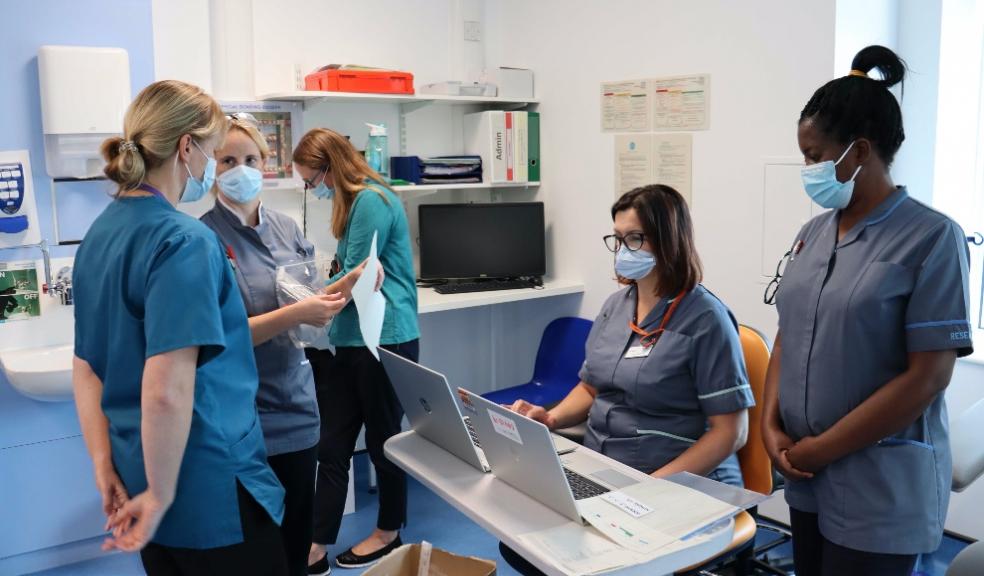
First results for COVID-19 study into virus immunity
The first results for the Sarscov2 Immunity and Reinfection Evaluation, or SIREN study, currently running at University Hospitals Plymouth (UHP), have revealed that past COVID-19 infection does provide some immunity to the virus for at least five months, but people may still carry and transmit the virus.
The study, funded by Public Health England (PHE) and supported by the National Institute of Health Research (NIHR), has involved regularly testing tens of thousands of health care workers across the UK since June for new COVID-19 infections, as well as the presence of antibodies, which suggest if people have already been infected. UHP in particular enrolled over 500 staff into the study, and their involvement has helped experts to identify the following:
- Antibodies from past COVID-19 infection provide 83% protection against reinfection for at least five months;
- Reinfections in people with antibodies were rare – scientists identified 44 potential reinfections among 6,614 participants who showed evidence of previous infection;
- However, early evidence also suggests a small number of people with antibodies may still be able to carry and transmit COVID-19 in their nose and throat, and therefore have a risk of transmitting to others.
As a result, Public Health England continues to stress the importance of following the stay at home rules and remembering hands, face, space – whether you have had the virus or not.
“What’s absolutely clear from these findings is that even those people who have previously had COVID-19 cannot be sure that they won’t transmit it to others, and may even get it again themselves,” explains Dr Gary Minto, Director of Research, Development and Innovation at UHP. “It is therefore crucial that everyone continues to follow the rules, remembers to wash their hands, wears a face covering and make space from others to help reduce the likelihood of passing on the virus. Vaccination also remains as important as it ever was, as our exit plan from this pandemic.”
Dr David Hilton, Consultant Neuropathologist and Principal Investigator for the study at UHP, added: “We would particularly like to thank staff at UHP for continuing to give up their time to participate in this important national study, which has already started to provide valuable information about the protection provided by previous COVID-19 infection. Our high retention rates to this study are testimony yet again to the commitment of our staff, as well as the research team and laboratories who are all doing their bit to keep us safe.”
It is now hoped that the study will start to see results of what additional protection having the vaccine provides, including preventing asymptomatic infection.
“This is invaluable for informing government policy to protect the population, both in the UK and across the world,” summarises David.
The SIREN study will continue to assess whether protection due to naturally acquired immunity may last longer than initial findings show, but there are concerns that people who contracted the disease in the first wave may now be vulnerable to catching it again. Public Health England have therefore advised that it is vital, with cases at their highest level to date, that people do everything they can to avoid the risk of potentially transmitting the virus to other people.
For further information on the findings of the SIREN study, read more here.
You can also access the NIHR website for more information www.crn.nihr.ac.uk/swpeninsula













